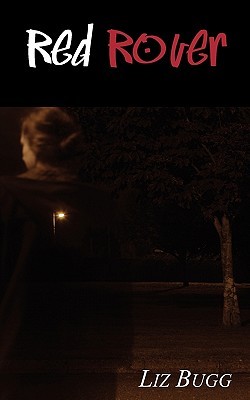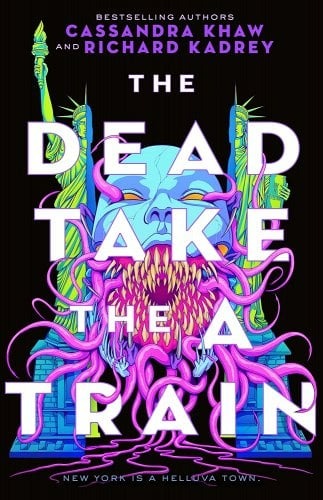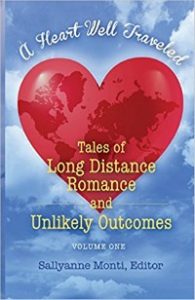I’m going to get my major problem with this book out of the way right at the beginning. I didn’t think it would be a perfectly even split between gay and lesbian books (and don’t get me started on those being the only categories), but I wasn’t expecting it be so heavily weighted on one side. By my tally, there are 38 essays on gay books, and 12 on lesbian books. I wasn’t expecting nearly triple the gay books than lesbian books; it’s really more “Fifty Gay (and Lesbian) Books”. It’s not that I don’t like reading about non-lesbian books, but it got a little old about half way through that there were so few lesbian essays. This is exactly why I agree with Rosalarian that GLBT is a strict hierarchy, including in terms of recognition/coverage. Moving on…
Fifty Gay and Lesbian Books Everybody Must Read is interesting in its diversity of theme. Some essays are straightforward discussions about books with gay or lesbian content, but some are more about queering text: looking at stories from a queer point of view. The essays also range in terms of length and academic content. Some were a little difficult for me to get through because they were so academic, while some were extremely casual. I especially liked the essays that showed how the novel affected the essay writer’s life, how their personal story interacts with the narrative.
This book doesn’t claim to be a canon, but it does claim to identify books that everyone should read about the gay/lesbian experience, not just queer people. I’m not sure if it really achieved that goal, especially since many of the essays are more about their personal experiences with the novels and not everyone’s experiences. I’m sort of glad it didn’t. Do we need to have mandatory gay/lesbian books? Aren’t all people allowed to have their tastes differ and be able to identify their essential books for themselves? Again, I’ve been pondering the concept of canon lately, and it fascinates me.
Have you read Fifty Gay and Lesbian Books Everybody Must Read or something similar? What did you think of it?
Also, I’m sorry if I go a little while between updates; my laptop won’t charge. I’m taking it in to be fixed soon, but until then posts might be a little erratic.




AbiLibrarian says
I read this book too and was equally frustrated, but this is so frequent in these kind of groupings- if it’s a g&l collection/list/whatever of any kind u just know there’ll be about 20% lesbian content. Also the whole idea of a canon is a white male construct designed to exclude anyone different to that. I much prefer the idea of a personal canon, have you seen Ali Smith’s The Reader- her choice of books and authors that have made her. A great collection and a great concept – gets u thinking about your own. Ace blog btw. X
Danika the Lesbrarian says
Yeah, it really is usually heavily male dominated, which is irritating. It’s also irritating that that’s never mentioned in the description or the reviews.
I’ve been wanting to read Ali Smith’s books, I’ll put that one on my list.
Thanks!
Amelie says
I haven’t read it, (I might) but I’ll admit Editor dislike makes me tempted to give it a miss; I was tutored and lectured by Richard Canning at university and he’s a self-satisfied and unpleasant man, with no observable interest in his students.
The gay focus and the lack of diversity in his representation doesn’t suprise me. He regards himself as a protector of a dying breed of ‘simple’ gay identity, and has no time for any construct/identity argument. I did a number of courses with him and honestly, he’s just stuck in a ‘make it gay!’ rut in his literary criticism, and an idea of gay male identity (lesbianism managed to come up about twice, ever) that’s a leftover from the 80s.
For all of that, I do think the set up of the book sounds interesting (personal experiences, etc). I still don’t know where to stand on his take on who should be included. He’s aware of a white male bias in his choices everywhere but argues they are led by quality writing; a feel some kind of co-editor might really benefit him.
Ooh, I feel better for that. He is my ‘hated professor’, nice to get the buried loathing out!
Danika the Lesbrarian says
Oooh, editor gossip! Wow, I don’t blame you for wanting to avoid the book, then. Aaah, it makes sense that he’s got a gay identity stuck in the 1980s. A lot of the stories centered around gay men and AIDS.
“He’s aware of a white male bias in his choices everywhere but argues they are led by quality writing”
See, I think it’s inherently racist/sexist to say “But it’s just that all the best writers happen to be male and white!”
Thanks for venting! That offered really interesting insight.
Amelie says
Believe me, if you enjoy editor gossip, I could keep going, and going…my old department ‘didn’t try and keep him’ at the end of last year, for a wide variety of reasons.
That’s how I felt about his argument too. I never exactly felt well read enough in gay/AIDS literature to argue the point, though I did try. I do think, aside from just how stupid ‘only white men write good!’ is, he’s making himself out of touch, because he focuses on white men (Mark Doty, who I think is wonderful, etc) as ‘quality’ writers, he’s ignoring international writing, that isn’t 15+ years old. If he could find African writing about the AIDS crisis he considered ‘high quality’ enough to teach, and I can’t believe there aren’t any, his anthologies, and his teaching, would be far more interesting, and less ‘relic’-y.
6-odd months without writing much more than a fb message is showing through. I’m off to learn grammar!
Danika the Lesbrarian says
“I do think, aside from just how stupid ‘only white men write good!’ is, he’s making himself out of touch, because he focuses on white men (Mark Doty, who I think is wonderful, etc) as ‘quality’ writers, he’s ignoring international writing, that isn’t 15+ years old.”
Definitely. I mean, it’s important to learn about our past, but you can’t ignore the present, either. Stalling in the 80s isn’t helpful to anyone.